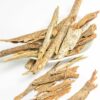“All diseases are from the nerves. Doctor, prescribe me something for stress ”- I often hear at the reception. And I prescribe, just not “from stress”, but “under stress.”
Stress is an ingenious “invention” of evolution that allows a person to adapt to changes in external circumstances. Otherwise – death from the teeth of a predator, from injuries or unbearable load.
First Dosha Stress Response
Interestingly, our first response to stress is largely determined by the dominant dosha in our Ayurvedic constitution (the ratio of doshas as systems for regulating psycho-physiological functions):
- A Vata-type person shows uncertainty, anxiety, indecision, fear. He may even die from stress.
- A Pitta type person shows impatience, irritability, anger, aggression.
- The Kapha person reacts to stress calmly and calmly. He will never die from stress, he can die from a stress factor, because he simply may not notice him.
Classical stress theory and Ayurveda
Almost everyone has heard of the existence of Hans Selye’s theory of stress. Let’s try to supplement it with an Ayurvedic look.
Let’s imagine the following situation. Suddenly, you are called “on the carpet” by your most important boss, who sets you a mega difficult task. At the same time, your body goes into the stage of anxiety (according to G. Selye). Vata dosha (according to Ayurveda) is sharply aroused: “What to do? Can’t handle it? If I can’t cope, maybe I’ll give a ballot or quit right away !? And if I can handle it, then – a bonus, a promotion !? ”.
All senses are sharpened, creativity increases. Vata impedes bold, decisive and organized Pitta dosha, they together awaken calm and hardy Kapha dosha, capable of long and productive work.
The stage of adaptation has come . All the resources of the body are mobilized for the solution of the task at hand. Satisfied with herself, Vata has already calmed down and looks at the well-coordinated work of Pitta and Kapha, occasionally introducing another valuable creativity into their work.
If the body’s resources are sufficient, then we are coping with a mega task! Bingo! Who is a good fellow? I’m fine fellow! Who helped me? Stress helped me!
And if the body’s resources are insufficient or the mega task exceeds our capabilities, then the stage of depletion begins . Vata dosha shouting “Chef, everything is gone!” soars to the skies, disrupting the dynamic balance of doshas and triggering the processes of catabolism (destruction).
This is how stress manifests its negative side: it destroys our nervous system, lowers immunity, and acts as a trigger for many diseases.
But let’s not talk about sad things, let’s better talk about how we can use the mobilization opportunities of stress and not bring the situation to the stage of exhaustion.
Ayurveda recommendations for chronic stress
It is customary to distinguish between chronic and acute stress.
In chronic stress, negative factors act for a long time. This can be: tensions in the family, interpersonal conflicts, long-term work without rest, etc.
To prevent chronic stress, it is necessary to suppress the occurrence of negative factors that generate stress and increase the body’s adaptive capabilities, following the following recommendations:
- Healthy restorative sleep – getting to bed early and getting up early.
- Proper nutrition: during the day; only in the presence of hunger; no snacking or overeating.
- Correct drinking regimen: drink warm clean water daily outside meals in a volume of 30 ml per kg of body weight.
- Daily feasible physical activity: morning exercises, walking (10 thousand steps), an active hobby.
- Refrain from bad habits and excesses (smoking, alcohol abuse), observe the measure (“golden mean”) in everything: in work and rest, in sex and food, in sports, etc.
- A course of herbal medicine with Ayurvedic drugs: Brahmi, Mentox, Di-Stress and Ashwagandha (with caution – in case of Pitta imbalances). The duration of the course is 2-3 months, then take a break for 2-3 weeks and can be repeated.
Ayurveda recommendations for acute stress
An acute form of stress occurs due to a strong and short-term effect of any factor of high intensity – shock, shock.
This can be: trauma, attack, panic, catastrophe, death of a loved one, etc.
In order to reduce the destructive effect of acute stress, it is recommended immediately at the time of its occurrence:
- Drink a glass of water slowly, in small sips.
- Count slowly to ten.
- Do pranayama (breathing exercise) for 5 minutes. Take a natural inhalation – pause – extended exhalation (approximately twice as long as inhalation). Concentrate all your attention on breathing, especially on the expiration phase.
- If possible, give the body physical activity: squat, climb stairs (escalators), walk or jog, go to a fitness or gym.
- If possible, do meditation or auto-training.
- If possible, conduct a session of “psychoanalysis”: to reduce the severity and strength of the problem, presenting it on the scale of your whole life, on the scale of the life of your people, of all mankind, the history of human civilization. Recall past problems according to the principle “everything goes away, and this will go away too.”
These Ayurvedic recommendations, at first glance, are simple to the point of banality, but very effective. It is impossible to eliminate stress from your life. But following these tips will allow you to avoid the destructive effects of stress, while maintaining its useful, mobilizing, adaptive and developmental potential.



